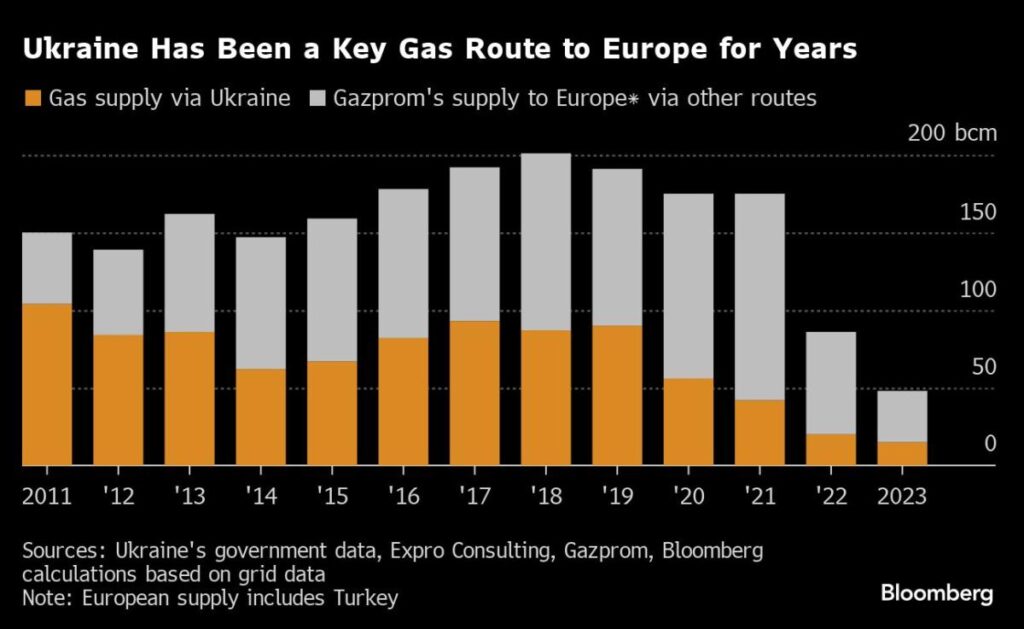(Bloomberg) — European energy ministers are meeting to discuss imports of Russian natural gas that continues to flow into the region even as the war in Ukraine rages into its third winter.
Most read from Bloomberg
At a meeting in Luxembourg on Tuesday, ministers from 27 countries will discuss the region’s preparedness for winter, as a key gas transit deal between Moscow and Kiev expires on December 31. The need to maintain energy security has already forced the bloc to look for new gas supplies, driving up energy prices and putting pressure on the region’s grid.
Europe must continue its efforts to transition away from Russian fossil fuels by reducing gas consumption and building renewable capacity more quickly. The Ukrainian pipeline is one of only two remaining routes to Europe for Russian flows, but liquefied natural gas exports continue to reach European shores in abundance.
Negotiations are underway to try to replace the transit streams, but a deal appears unlikely with less than three months to go. Both Kiev and Moscow have said they are ready to find a solution that could also involve Azerbaijan.
The final decision will likely come at the last minute or even early next year, according to people with knowledge of the matter who asked not to be named because the discussions are private.
Slovakia, which together with Austria is the main buyer of transit flows, would like to continue using the route. One option being discussed is replacing Russia with Azerbaijan as a supplier, but details of how this would work remain unclear. With limited spare supply, Azerbaijan’s exports to Europe would require bartering with Russia, making such an agreement politically controversial.
Another option could be that Azerbaijani SOCAR could take on the role of Gazprom PJSC and sell the gas to Europe, or the company could facilitate transit through Ukraine.
According to the population, the volume will need to be about 10 to 11 billion cubic meters to reach the level necessary for smooth shipment through Ukraine’s vast pipeline system. Lower levels would mean additional gas would have to be pumped in, making the operation unprofitable.
“It is a Ukrainian decision on how to deal with the pipeline, so it is also their responsibility and their right to deal with it in a good and responsible way,” European Commission President Ursula von der Leyen said last month.
Relations between Russia and the former Soviet republic of Ukraine have been fraught with tensions over gas transit since the fall of communism, with disputes leading to two supply cuts in 2006 and 2009.
The European Commission, which has helped broker agreements between the two countries in recent decades, is not facilitating talks this time. It has repeatedly said Europe can weather the end of Russian gas transit through Ukraine without endangering security of supply.
Gas storage in the EU is full and gas flows via the Ukrainian route now account for less than 5% of the continent’s supply. But for countries like Slovakia and Austria, finding new imports could mean higher prices, a factor that politicians don’t like.
Most read from Bloomberg Businessweek
©2024 BloombergLP

